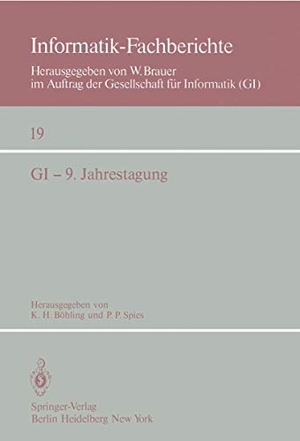Für statistische Zwecke und um bestmögliche Funktionalität zu bieten, speichert diese Website Cookies auf Ihrem Gerät. Das Speichern von Cookies kann in den Browser-Einstellungen deaktiviert werden. Wenn Sie die Website weiter nutzen, stimmen Sie der Verwendung von Cookies zu.
Cookie akzeptieren
- Springer Berlin Heidelberg
- 1979
- Taschenbuch
- 704 Seiten
- ISBN 9783540096641
In the field of programming language description, it is widely accepted that van-Wi1ngaarden grammars (vWGs, [Ba72), [A68R) provide a powerful and yet simple formalism to describe the syntax and context conditions of programming languages. (See, for instance, the comparison of definition techniques given in [MBL76).) However, vWGs cannot be used for automatic compiler generation, since the "referencing problem" [K074) is not decidable in general. Several proposals have been made to restrict vWGs to decidable subclasses that are suited for automatic parser generation, for example [Ba72), [De7S), [KS77), and [We78). Extended Affix grammars (EAGs, defined in [Wa7S) are of particular interest, since they fill the gap between Two-Level
Mehr
Weniger
zzgl. Versand
in Kürze